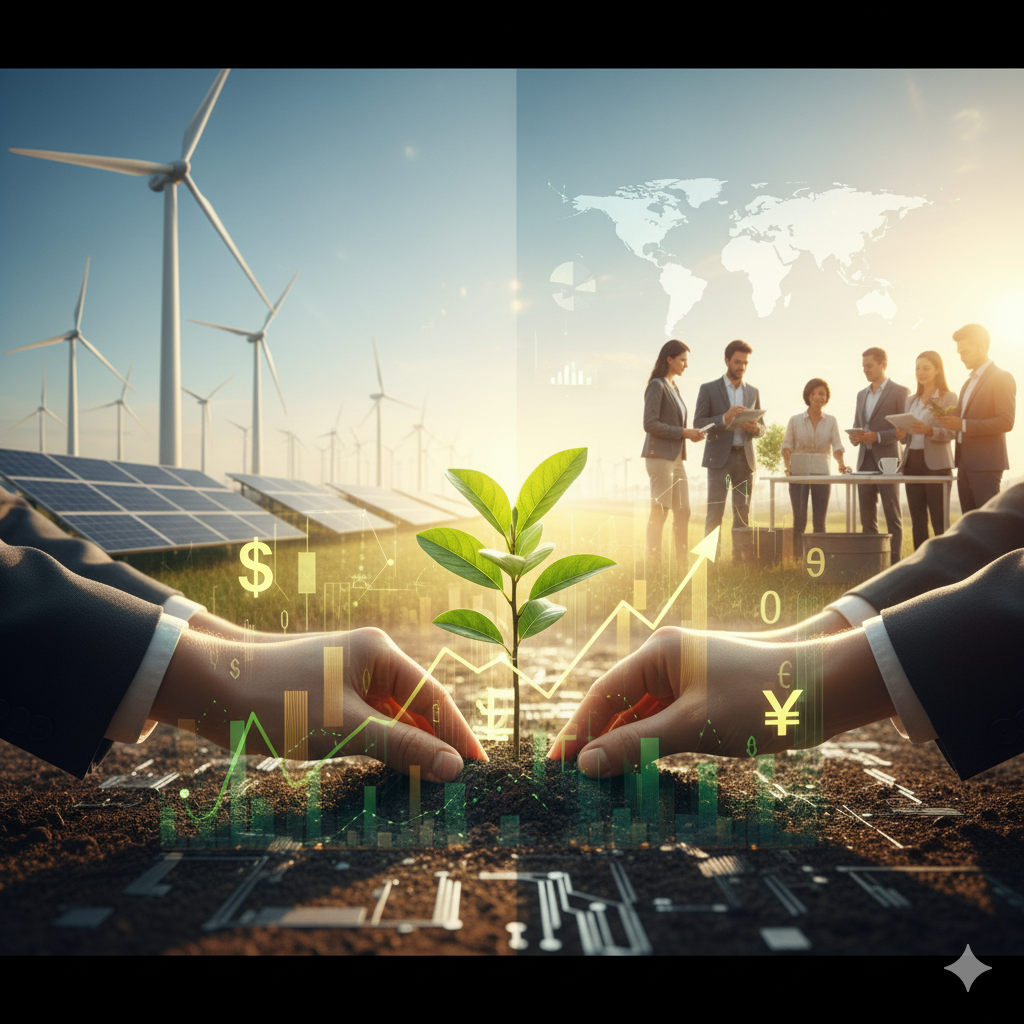F.L.Y. After 50
Archives
Sustainable Financing: Investing in a Greener Future
SIGN UP FOR OUR NEWSLETTER
Sustainable Financing: Investing in a Greener Future |
How Sustainable Finance is Driving Environmental and Social Progress |
Sustainable financing is revolutionizing the investment landscape by integrating environmental, social, and governance (ESG) factors into financial decision-making.
This approach aims to generate financial returns while fostering positive environmental and social impacts.
In recent years, the United States has witnessed significant strides in sustainable finance.
In April 2024, the Environmental Protection Agency (EPA) awarded $20 billion in green bank grants to eight community development banks and nonprofit organizations.
This initiative targets clean energy projects nationwide, focusing on disadvantaged communities to combat climate change and reduce carbon footprints.
Projects include residential energy-efficient improvements, electric vehicle charging stations, and community cooling centers.
Vice President Kamala Harris emphasized the community-centric approach, allowing local insights to guide impactful projects.
Funded by the Greenhouse Gas Reduction Fund under the 2022 Inflation Reduction Act, these grants aim to ensure a $7 return for every federal dollar invested, with 70% of funds directed to disadvantaged communities.
Major recipients include the Coalition for Green Capital and Appalachian Community Capital.
Despite opposition from some Republicans, proponents highlight the program's importance in cutting emissions and engaging communities in the clean energy transition.
Additionally, the Biden administration announced a $366 million investment to fund 17 clean energy projects in underserved, rural, and remote areas across the U.S.
These projects aim to improve energy reliability and affordability, reduce high electricity bills, and support the administration’s goal of directing climate-related investments to overburdened communities.
Funded by the 2021 infrastructure law, the projects will introduce clean energy solutions such as solar power, heat pumps, and electric vehicle (EV) charging infrastructure to 20 states.
Energy Secretary Jennifer Granholm highlighted that the projects will create jobs and offer more reliable energy sources.
Twelve of the projects will focus on tribal communities, addressing the significant lack of electricity in many Native American homes.
Key projects include the CHARGE Partnership, which will develop solar microgrids for rural health centers, and the Chignik Hydroelectric Dam renovation in Alaska.
Another notable initiative will provide off-grid solar systems for 300 Hopi and Navajo homes in Arizona, New Mexico, and Utah.
The selected projects will negotiate with the Department of Energy before final awards are granted.
These developments underscore the growing commitment to sustainable finance, demonstrating how strategic investments can drive environmental progress and social equity.
By prioritizing ESG factors, investors and policymakers are paving the way for a more sustainable and equitable future. |

